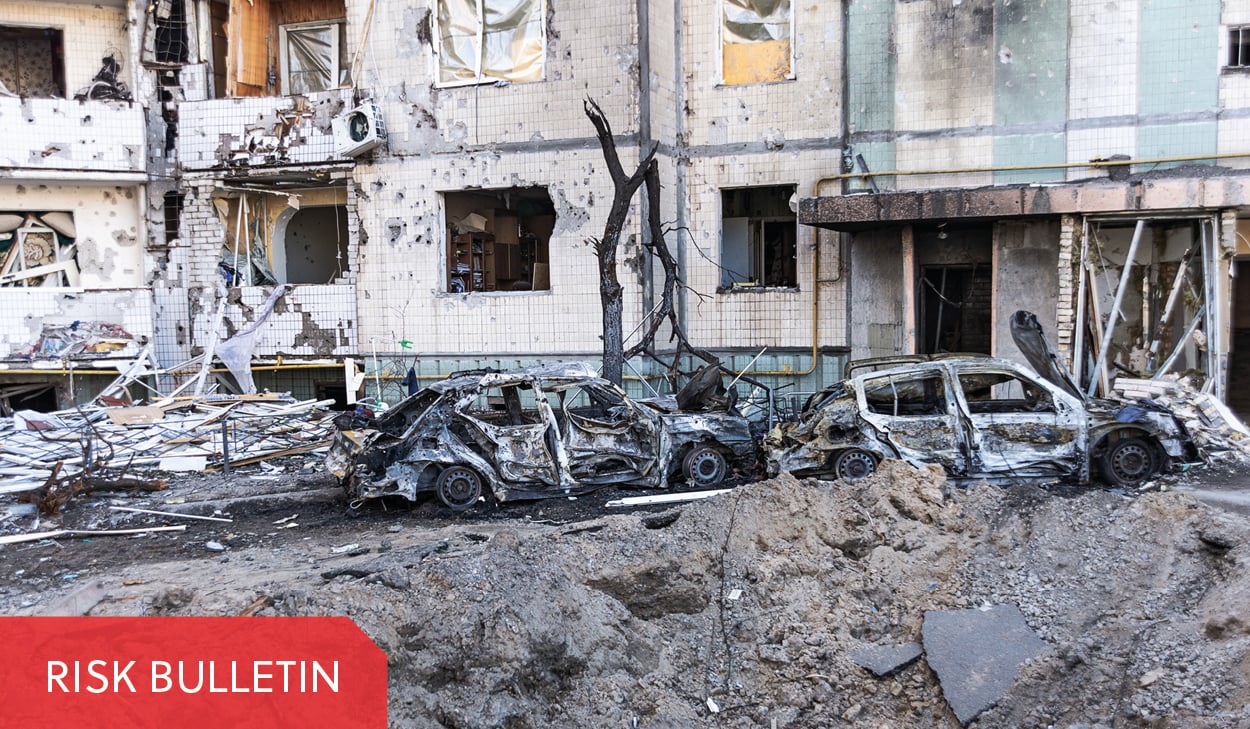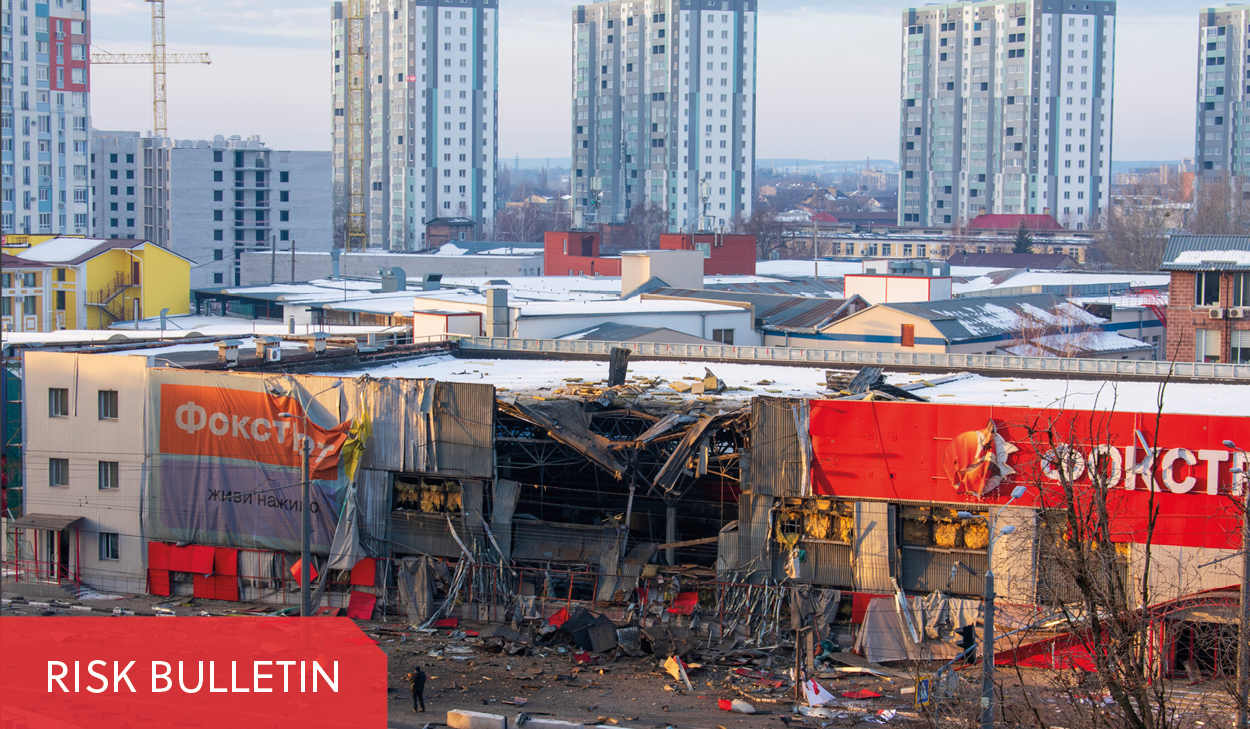Since January this year, workers’ unions, civil society groups, and opposition parties have staged mass countrywide protests to denounce a law set to increase France’s national retirement age. Jervin Naidoo discusses how these demonstrations not only reflect dissatisfaction with the new law, but also speak to a deep-seated discontent with government.
64 ans, c’est non! (64 years, no!) The popular refrain sums up the call from millions of protesters to scrap the French government's plan to increase the retirement age by two years. But despite protests numbering in the millions, the government led by President Emmanuel Macron has persisted in pushing through the reforms. Not since the 2018 Mouvement des gilets jaunes (Yellow Vests Movement) has France seen civil unrest at this scale.
While on the surface the protests were centred on the increase of France’s official retirement age from 62 to 64, as with the gilets jaunes, the unrest signalled a more profound social discontent and a rejection of Macron’s policymaking decisions and leadership style. The reforms have left in their wake a volatile political environment, and a simmering threat of further unrest for the remainder of Macron’s presidency that will likely play a significant role in the outcome of the 2027 elections.
Macron’s popularity on the decline
Macron took office in 2017, winning the elections as an independent candidate in defiance of traditional political divisions; his En March! movement presented a liberal centrist alternative that resonated well with voters disillusioned with the more established parties. At the same time, his run-off victory over Marine Le Pen was interpreted in some quarters as less of an endorsement for Macron and more a rejection of the far-right candidate. But winning an election was one thing, with commentators quick to question Macron’s prospects for gathering the political support needed for running a country. In the end, his popularity was short-lived. Though Macron did hold off a challenge from Le Pen by securing re-election in the 2022 election, he did so with a much narrower margin and the lowest voter turnout in a presidential election since 1969.
Macron’s policy choices, such as an environmental levy on diesel - which sparked the 2018 gilets jaunes movement centred on economic inequality in France, his unpopular pro-business tax reforms of 2019, 2020 and 2022, and his continued attempts to reform France’s public administration, have steadily eroded his public support. The pension reforms have shrunk his popularity further, continuing a steady trend of declining support which now hovers around the 20 percent mark.
Policy decisions aside, Macron’s aloof and divisive leadership style has fed further into the public’s underlying distrust and disconnect with French politics. Perhaps befittingly then, Macron resorted to pushing the pension reform through parliament by invoking special Article 49.3 which overrides a parliamentary vote on legislation. Macron’s government survived the resulting vote of no confidence by just 10 votes, suggesting he is also losing support from within his own party and allied parties in parliament.
Macron’s approval rating between June 2017-March 2023

The cost of reforms
On 14 April, France’s Constitutional Court cleared a trade union challenge to the reform on constitutional grounds, and Macron signed the bill into law the same day. The ruling prompted an immediate reaction, with protesters setting fires across Paris and in other French cities, and unions vowing to continue their opposition until the law is revoked. With an estimated 70 percent of citizens still standing against the reforms, Macron is likely to face a torrid time for the remainder of his presidency.
Aside from the persisting threat of civil unrest, the broad spectrum of party opposition to the reforms, from the far-right National Rally to the far-left La France Insoumise, suggests that the political wrangling is far from over. Yet, pension reform has been sorely needed in France, and debates over it have been going for decades. Ahead of the reforms, France had one of the world’s lowest retirement ages, and spent some 14 percent of its GDP on state pensions; and with an aging population, the pension system is set to come under ever increasing strain. The Pension Advisory Council (COR, Conseil d'Orientation des Retraites) has forecast a pension system deficit of around EUR 13.5 billion (USD 15 billion) in 2030, with the pension reform set to bring an additional EUR 17.7 billion (USD 19.7 billion) into the coffers by 2030. But these are projections, and thereby subject to the same macroeconomic conditions that will impact the rest of the economy.
Tracking Macron's approval ratingsJune 2017 – Macron wins elections with 55 percent approval rating December 2018 – Approval drops to 24 percent in the wake of gilets jaunes movement June 2020 – Steady decline of approval ratings following tax reforms and other policies that are poorly received by the public December 2022 – March 2023 – Decline amid pension reforms, with approval reaching a new low of 23 percent in March |
One nation, divided
The pension reforms have contributed to a divided political battlefield, but that in itself is not a new development in France. The country has long been beset by political divisions pitting a radical left, a reformist centre and a populist right against each other. In the current economic landscape, however, even the relative strength of the French economy has been tested by a persistent cost-of-living crisis across Europe. The ferocity of the pension reform protests has inevitably been, at least in part, driven by very real concern over economic hardship. The persistent sense of uncertainty, along with the almost inevitable unrest it will bring, will test government resolve and present a challenging operating environment for businesses in the country for some time.
It is precisely this uncertainty that the more populist political parties are likely to capitalise on. In the short term, continued strike and protest action will persist. But, looking further ahead, the unpopularity of the reforms may well signal the end of Macron’s centrist party’s ambitions in the next election. That will open up space for more radical options, with Le Pen’s National Rally party looking the most likely to benefit. Still, the same ghosts that haunted her previous runs for president remain, and her previously close ties with Russian President Vladimir Putin along with incoherent economic policies may see the French public settle on a more moderate choice once again. Nevertheless, the lead up to the 2027 election will prove a challenging time for France.




 Email Jervin
Email Jervin





 @SRMInform
@SRMInform
 S-RM
S-RM
 hello@s-rminform.com
hello@s-rminform.com

